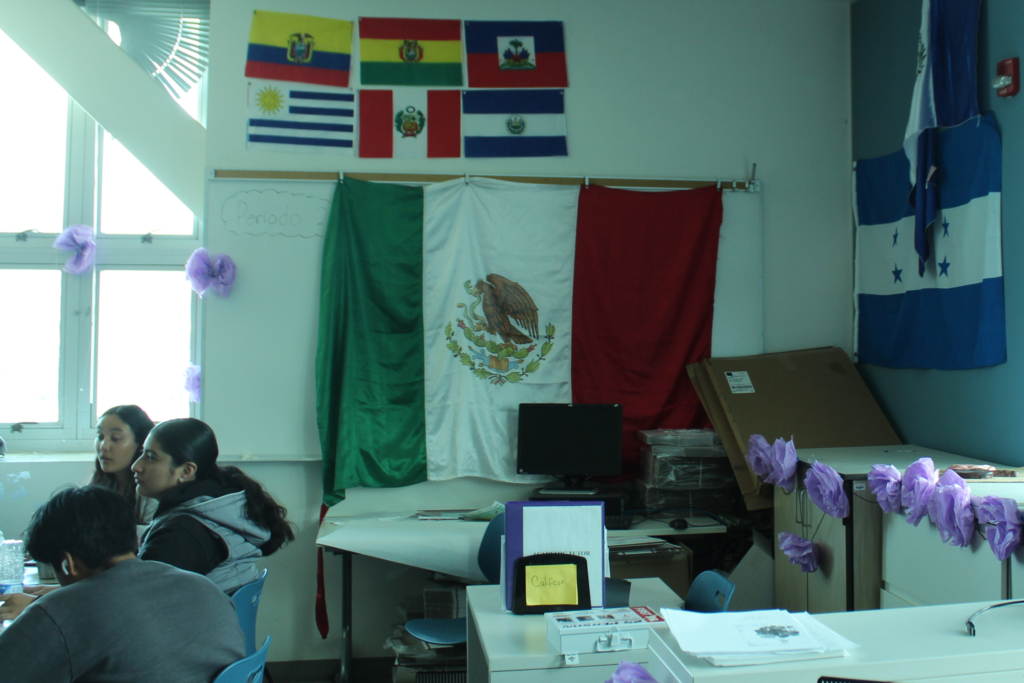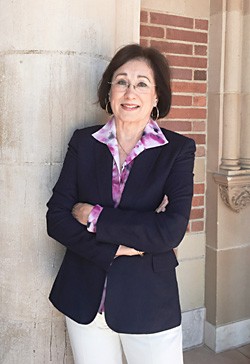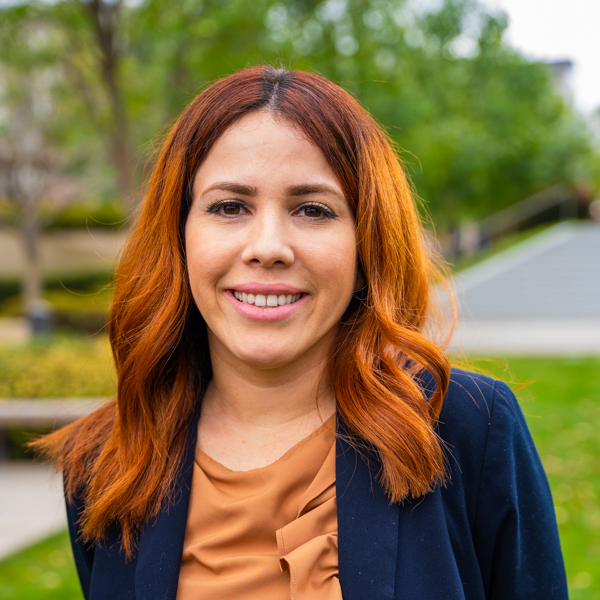by Monica Salazar-Jimenez

Preservation of one’s own culture does not require contempt or disrespect for other cultures.
Cesar Chavez
Sylvia Mendez was the first Latina to enter an all-white school in Southern California. The court case of Mendez vs. Westminster happened in 1947 prior to the 1954 ruling in the case of Brown vs. Board of Education in which the U.S. Supreme Court ruled that racially segregated schools were unconstitutional.

This is the story of the Latina who wanted to go to a non-segregated school where she was being prepared to go to college —not what they thought Latinos are meant to do. By doing so, she put a crack in a glass ceiling for Latinas. Glass ceilings take many forms, but in Mendez’s case, it was a discriminatory barrier preventing Latinas from rising up in their careers and education considering that these are higher positions.
Deborah Grijalva, a Latina, described the glass ceiling for Latinas who are first-generation students. Her research showed that Latinas are part of a minority population that is growing more rapidly than other minority groups in the U.S. Latinas are part of a minority population that is growing and within the minority population, very few Latinas enroll in a graduate program and even fewer enter Ph.D. programs. It is already hard enough for women, in general, to crack the glass ceiling; it is even harder for Latinas. Grijalva suggests that there are five top challenges that Latinas face when breaking the glass ceiling, in graduate studies. The five challenges are poverty, lack of education, family and financial obligations, biculturalism, and lack of mentors.
Patricia Gándara, Professor of Education, at UCLA and co-director of The Civil Rights Project and The White House Initiative on Educational Excellence for Hispanics, writes in her project that “a recent analysis of U.S. Department of Education [stated] the average amount of student debt accrued by age 26 for Latinas who had gone to college was [about] $22,000 in 2012.” If Latinas live below the poverty line and cannot have money for basic necessities they will not have the money to provide the graduate education that they would like to achieve. This leads them to apply for loans which can become an unbearable debt they have to pay later.

In her White House initiative “Fulfilling America’s Future: Latinas in the U.S. 2015,” Gandara mentions that “education is the foundation upon which all other aspects of personal and economic well-being are built. People with more education generally have better jobs that pay more, and more often include benefits such as health insurance and retirement plans.” Since Latinas are at a disadvantage when it comes to education, it takes more work and more time to reach the top of the ladder for better personal and economic well-being. Grivalja states that this is not only a problem for Latinas attempting to attend college at an undergraduate level and graduate level but those in “the postsecondary and high school levels as well.”
Latinas not only have financial obligations but family obligations too. Students, whether in high school, college, or graduate school, are often needed in Latino homes needed for translating for parents, helping take care of the home or younger siblings, and contributing to the family income. Susan R. Sy and Jessica Romero, both attendees of California State University campuses, wrote a study titled Family Responsibilities Among Latina College Students From Immigrant Families. The purpose of their study was to examine different types of family responsibilities among Latina college students and how these responsibilities affect their college experiences. They conducted interviews “with 20 first-and second-generation Latina women, aged 18 to 29. Results point to three key themes regarding the role of family responsibility, which are discussed in the context of Latina students’ college adjustment and retention.” Grivalja mentions in her dissertation that underscores these themes, pointing up were emerging self-sufficiency to sustain the family, the voluntary nature of their financial contributions, and their role as surrogate parents for younger family members. One of the successes has been to handle different cultures and languages.
Biculturalism is defined as the presence of two different cultures in the same country or region. Grivalja used this to show that it has an effect on Latinas in higher education settings. It could be a “possible stress-buffering effect of biculturalism on feelings of loneliness and alienation related to feelings of differentness in Hispanic college students in a bicultural setting.” In this study, the researchers did not find any connection between biculturalism and loneliness and alienation but instead a positive outcome.
The last challenge to Latinas seeking graduate studies is lack of mentorship. Research by Lyon, Scroggins & Rule (L, S &R) showed that people who had ” With mentors, they have a better chance at a greater understanding of their education. In this way, they are guided in university tasks that they might not understand like financial aid, scheduling classes, and networking. Having mentors is important when navigating a life that has not been lived by one’s parents or close friends. In many Latino families, parents have never seen a college application, looked at FAFSA, or even received a degree.
Itzel Meduri, a professor of Spanish at Biola University, earned her doctorate in 2015 at the University of California-Irvine. Her degree was one of only 7 percent awarded to Latinas that year. She points out that her role as a Latina faculty member makes her one of few in academia compared with White male faculty.

Meduri says her religion has impacted her career. She says she often asks herself, “How is my… herself questions as follows, “ How is my research benefiting the kingdom of God? Does my research take into consideration the social realities of people? Am I accumulating knowledge simply for self-interest or to boost my ego? How can I continue learning from others – inside and outside academia?” As a Christian scholar, she says she is someone who values community engagement. But she finds the scholarly community does not necessarily encourage this.
Meduri grew up in the city of Wilmington, California to her Mexican parents who immigrated from Jalisco, Mexico. According to the U.S. Census in 2020, the median household income in Wilmington was more than 50 percent below the state’s average. U.S. News and World Report in 2022 mentioned that 93 percent of high school students are economically disadvantaged.
Her inspiration is her mother. Her mother was a school teacher in her country and one time she was asked to administer an injection. Her mother did not have the knowledge of a doctor but of a school teacher. Meduri says, “My mother is a person of great courage and wit who raised me in a foreign country where people like her, a Brown woman with limited English proficiency who could not validate her teaching degree in the U.S. and became a factory worker, were assumed ignorant and incompetent.”
At age twenty-two, Meduri became part of the two percent of teen moms earning a college degree by age thirty having had her son at 19. Meduri mentions how religion has impacted her as she is a teacher now, “As a teacher, God has entrusted me with the education of thousands of students, and I have an obligation to confront my biases and remain humble so that I can allow God’s correction in my life and learn how to love in a manner that resembles that of Christ’s more and more every day. “
Meduri reflected back on her story from middle school to getting her doctorate degree and this is what she said, “ I was in middle school when Mr. Mulkey called me smart and encouraged my mother to consider enrolling me in the gifted program at the high school I would soon attend. In high school, Mrs. Vargas applauded me for thinking critically instead of interpreting my vocal disagreements with aspects of the subject matter as disrespect. I was in college when Dr. Gómez approached me after class and asked me if I had ever thought of earning a doctorate. “Yes,” I replied, pretending to know the meaning of a doctorate. Then he volunteered to be my mentor under McNair’s Scholar Program, a government initiative designed to increase the attainment of Ph.D. degrees by historically excluded members of society.”
Dr. Gómez, a Spanish literature professor, taught her that her interpretation of the text mattered and that she could – and should – bring in her whole self to class because that would make her a better, more authentic thinker.
He gave Meduri, a young woman from Wilmington, California, the confidence to travel across the continent as an undergraduate to Seville, Spain where she would present her research on Puerto Rican author Ana Lydia Vega’s work. Dr. Gómez’s mentorship and the mentorship she received as part of the McNair Scholar’s Program were vital in helping her succeed as a Ph.D. graduate. Meduri perceived her mentoring relationships as having been crucial in ensuring her academic success, and it is through this lens she approaches mentoring now as a faculty member.
Meduri’s story is an example of Latina perseverance and triumph over challenges that face so many. Latinas continue to triumph in educational settings with support from mentors, family, and friends.